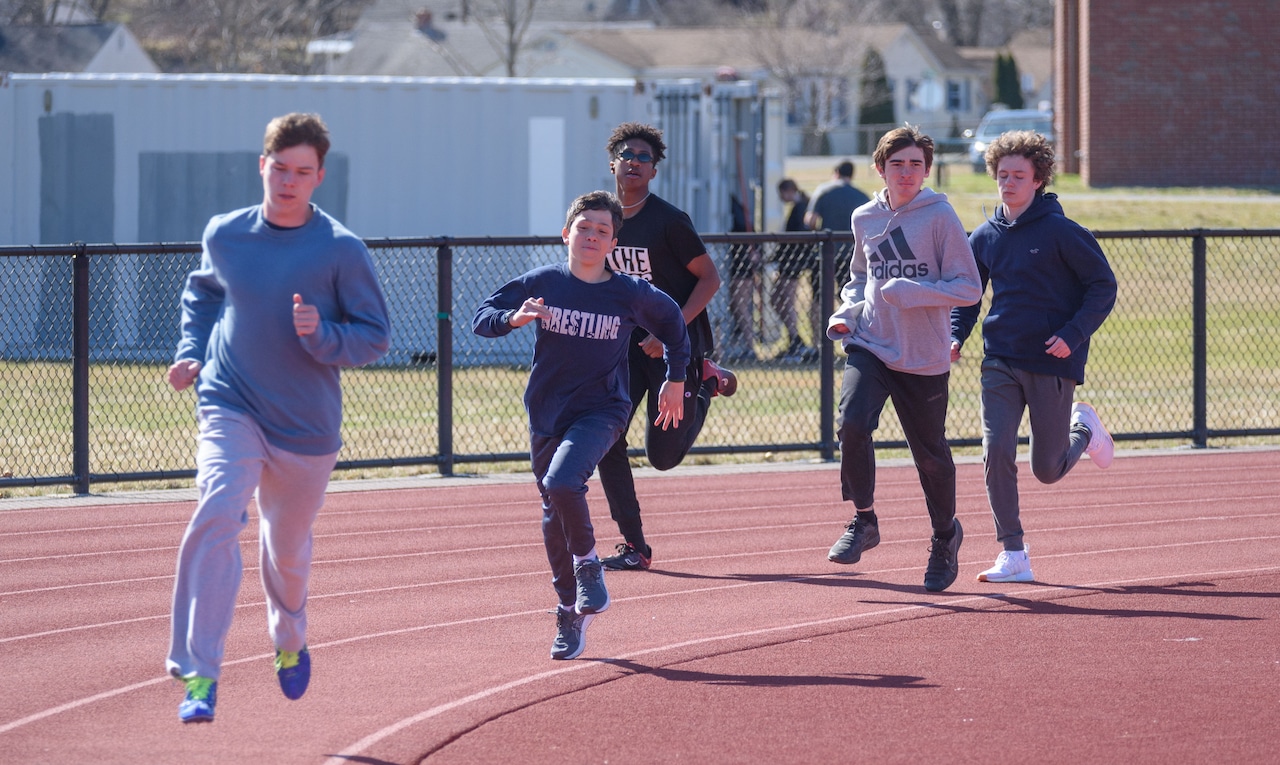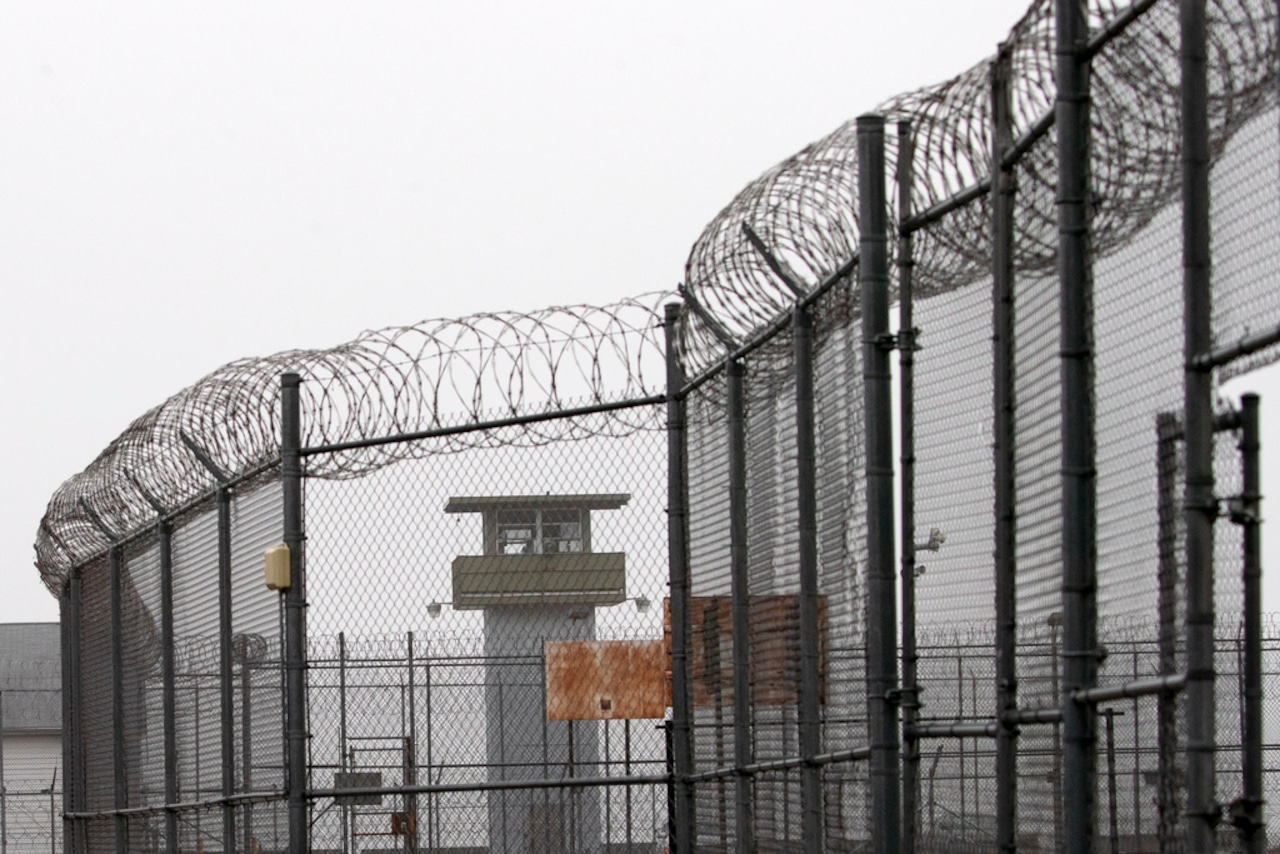
SOUTHWICK — After a Regional School District school committee member and the district’s finance director appeared before the town’s Community Preservation Committee Tuesday to convince its members to support a request for $192,000 to rehabilitate the district’s track, the committee agreed to split the cost.
“I figure if we split it, I’d feel good about using CPC funds for reconstruction, but not so good about maintenance,” said CPC member John Whalley III before making a motion to approve requesting Town Meeting to authorize spending $100,00 in CPC funds to repair the track located next to Powder Mill Middle School.
The CPC called a special meeting last week because the application by the Southwick-Tolland-Granville Regional School District for $192,000 to repair the track arrived after the committee’s deadline of April 2.
While missing the deadline was problematic for Committee member Dennis Clark, the most significant issue for three of the committee members was that repairing the track would be considered maintenance, which CPC funding criteria doesn’t allow.
“I think the track’s a great thing – don’t get me wrong – the way [the application] was presented…came in late…it was kind of being rushed in front of us now, and it does appear to be a maintenance issue, so [with] all these factors involved, I hate bringing it to Town Meeting,” Clark said.
Committee member Christopher Pratt agreed.
“The reason I see it as maintenance is…because [the track] has a 10-year cycle. It needs to be done every 10 years…it’s foreseeable,” he said, suggesting the school district should have budgeted for the repairs.
School Committee member Russell Fox and the district’s Finance Director Nicholas Bernier were at the meeting to answer the question as to whether repairing the track was considered maintenance or rehabilitation.
“This is a very important restoration project, not only for the school system, but for the use of the community at large,” Fox said before saying the track has “structural issues that need to be corrected.”
Once Fox finished advocating for CPC funds to be used for the project, Pratt asked the first question.
“How is this not a maintenance project?” he asked.
Bernier answered Pratt’s question.
“The scope is beyond what would be considered maintenance,” Bernier said.
He said lane one lane of the track has become uneven and is no longer used during competitions and if the structural issues, mainly because of drainage under the track, aren’t addressed, eventually it will become unusable.
“Doing this will prolong the useful life of the track…and add 10 to 15 years to the life of the track,” Bernier said.
That prompted Clark to ask if the school district had tried to address the drainage issues.
Fox said yes, but the repairs were not successful.
Pratt asked if the school district had another source of funds to pay for the rehabilitation.
Bernier said the district included the cost of the repair in its fiscal 2026 capital budget.
It was during the CPC’s meeting last week that Select Board member Jason Perron asked it to hold a special meeting, primarily, he said, to help “the town budget.”
“It’s going to be a tight [budget] this year and freeing up that $192,000 off the [school district’s capital budget] would help the town budget significantly,” Perron said.
Pratt, to make his point that the school district should have budgeted for the track repairs, handed out a document that he described as a maintenance plan, which would have had the district setting aside $10,000 to $15,000 a year.
And because CPC funds were used in 2014 when the track was installed, with the help of a $500,000 donation from the district’s former track coach Steve Nielsen and his wife Elizabeth, Pratt said using additional CPC funds would be a conflict because it would be considered maintenance.
Committee member David Spina pushed back.
He pointed out that CPC criteria allow for “extraordinary repairs.”
Spina used the upkeep of a car as an analogy of an extraordinary repair.
He said servicing a car, like keeping the oil changed and putting new tires on, would be considered maintenance, but that if the car’s engine needs rebuilding, that would be considered an extraordinary repair.
Pratt suggested that if the track needs repair every 10 years that could be considered maintenance.
Spina said if that happens, then it will need another extraordinary repair.
Committee member Richard Harriman agreed with Spina.
Pratt then asked if the drainage problems at the track will be corrected by the repair.
Fox said there are “no guarantees” it will, but the importance of the track to the community was “unquestionable.”
“It’s not the school system, but the whole community [that will benefit],” Fox said.
Clark then asked if the district would be willing to split the cost.
Fox was open to that suggestion.
Moments later, Whalley III made the motion to request Town Meeting allocate $100,000 for the repair. It passed unanimously.






